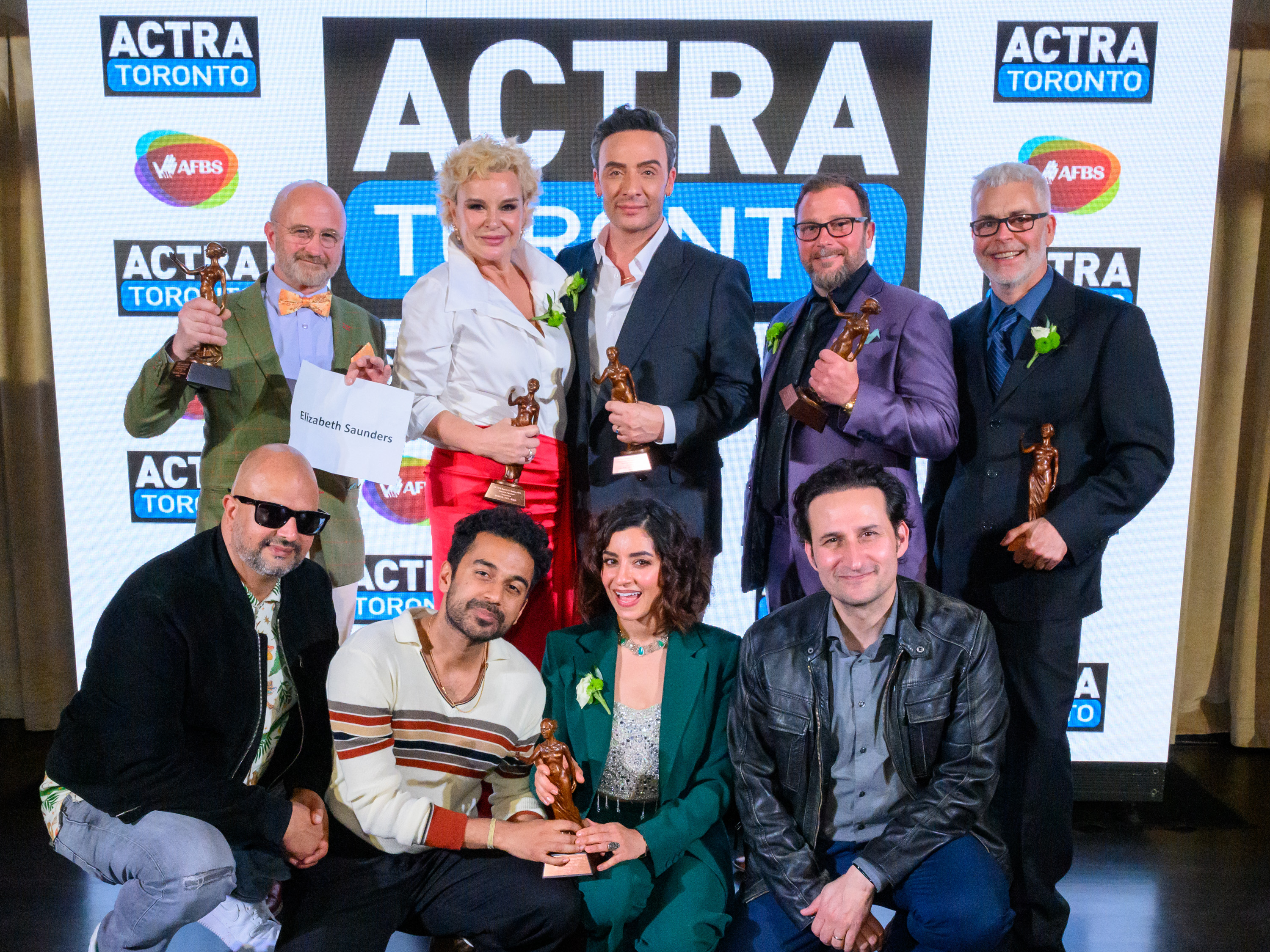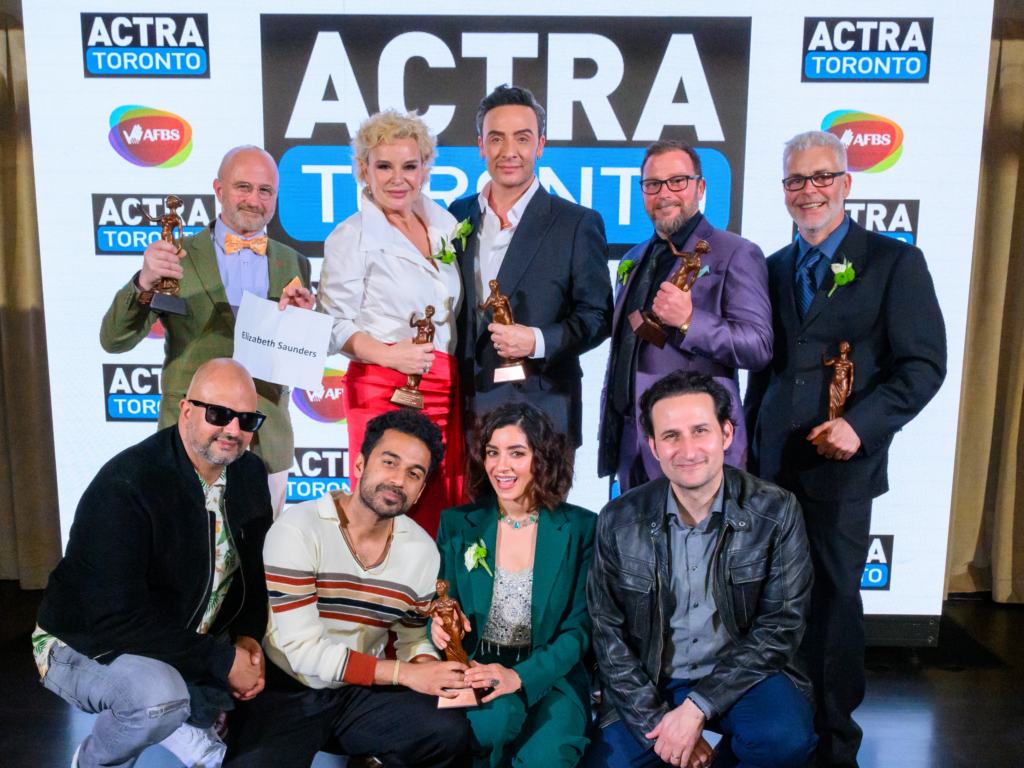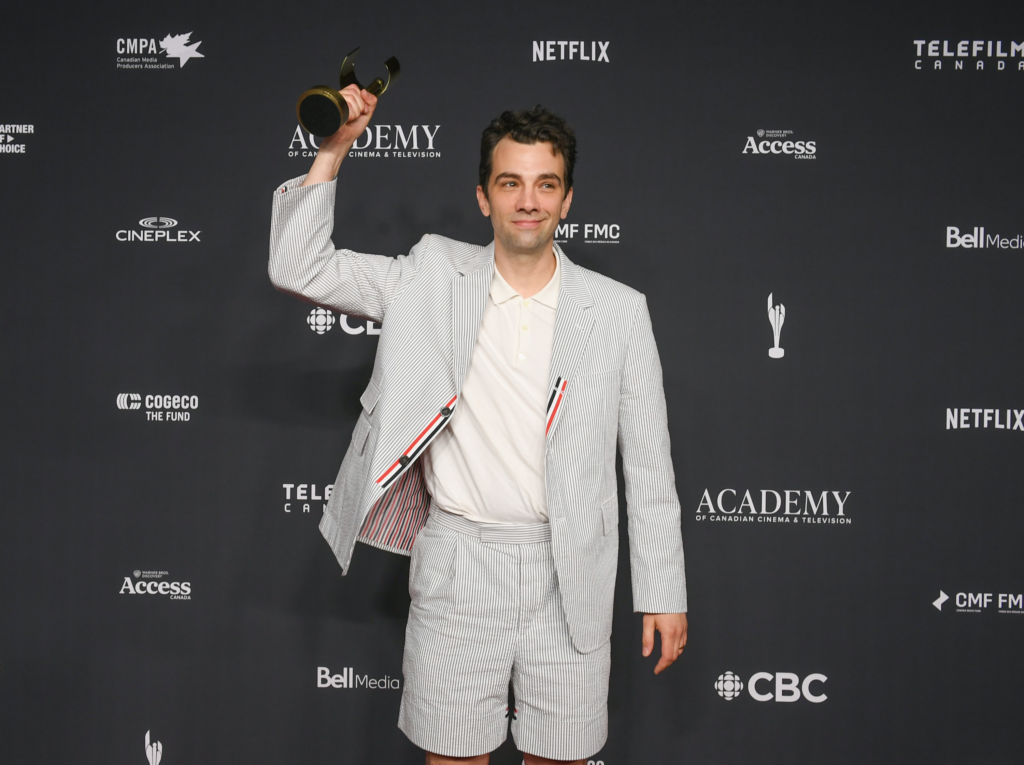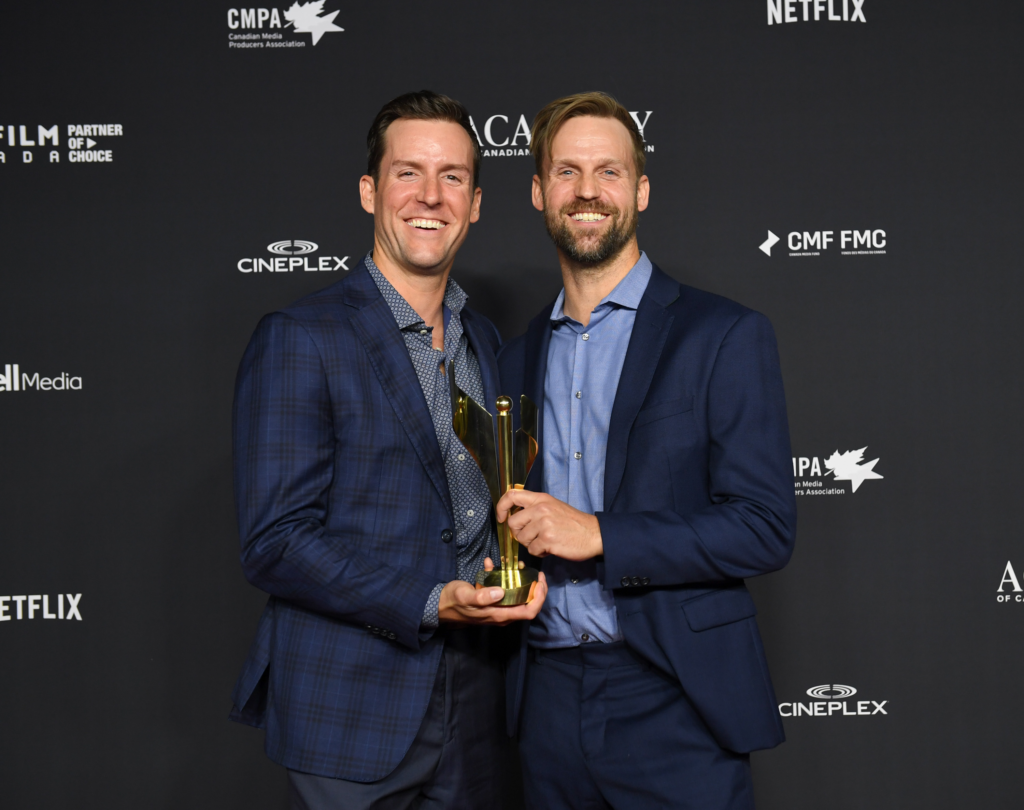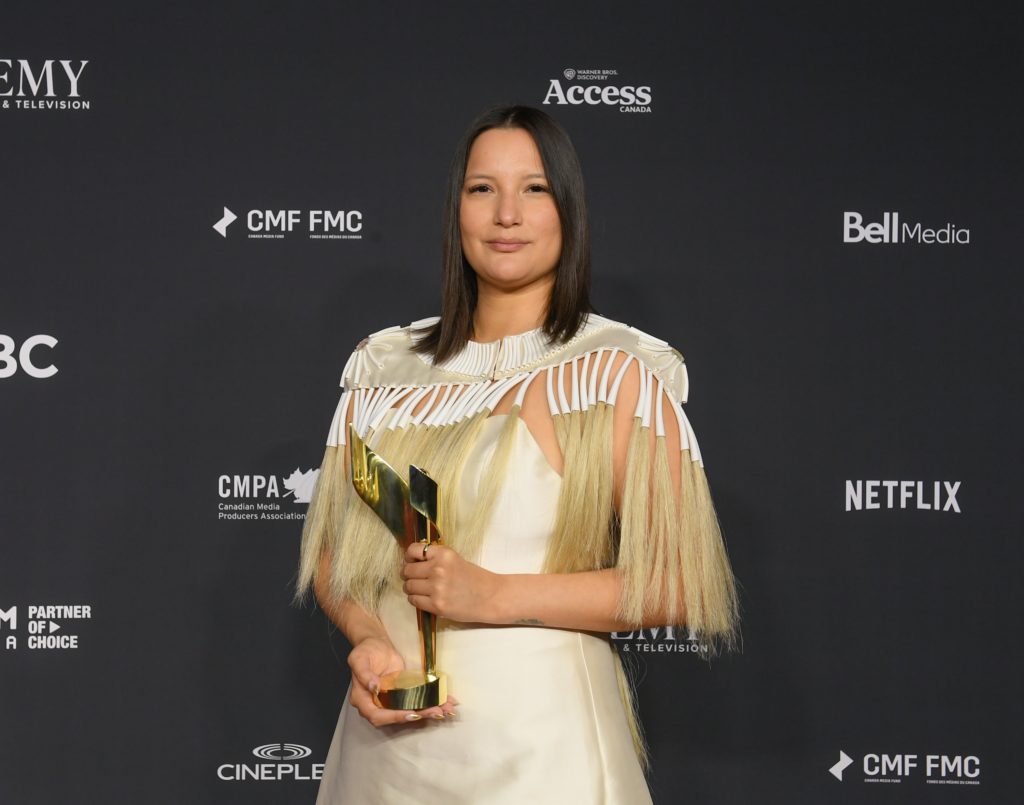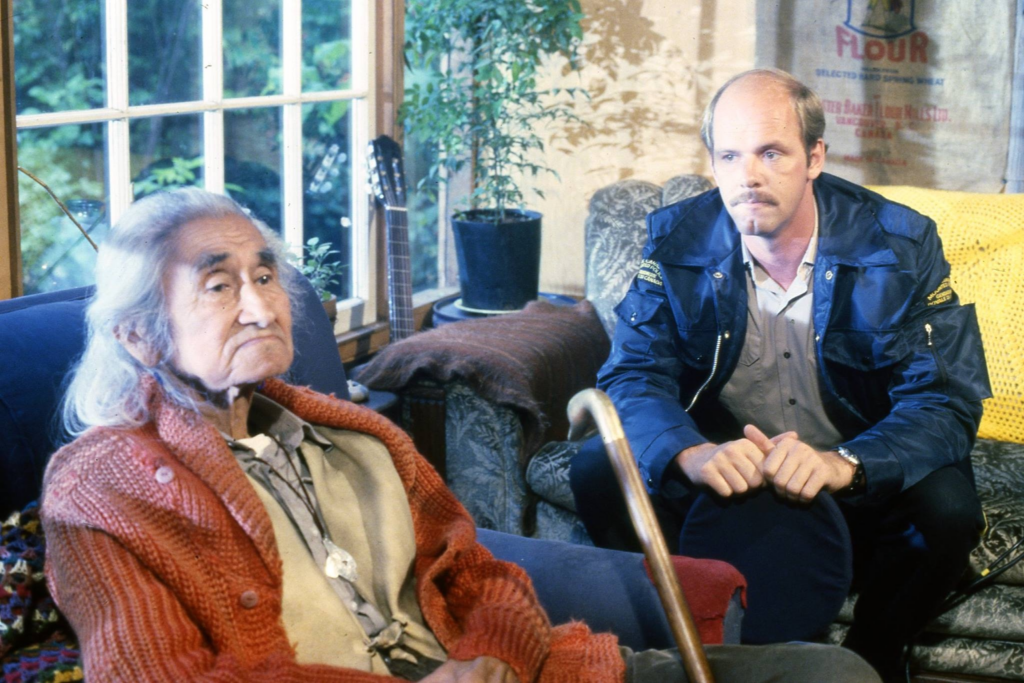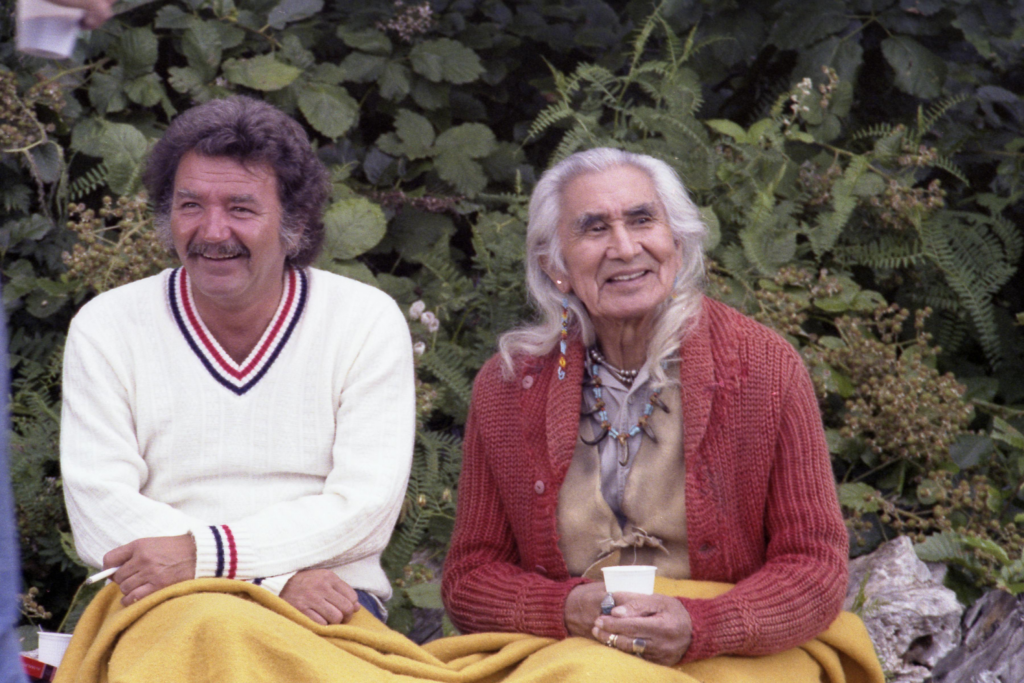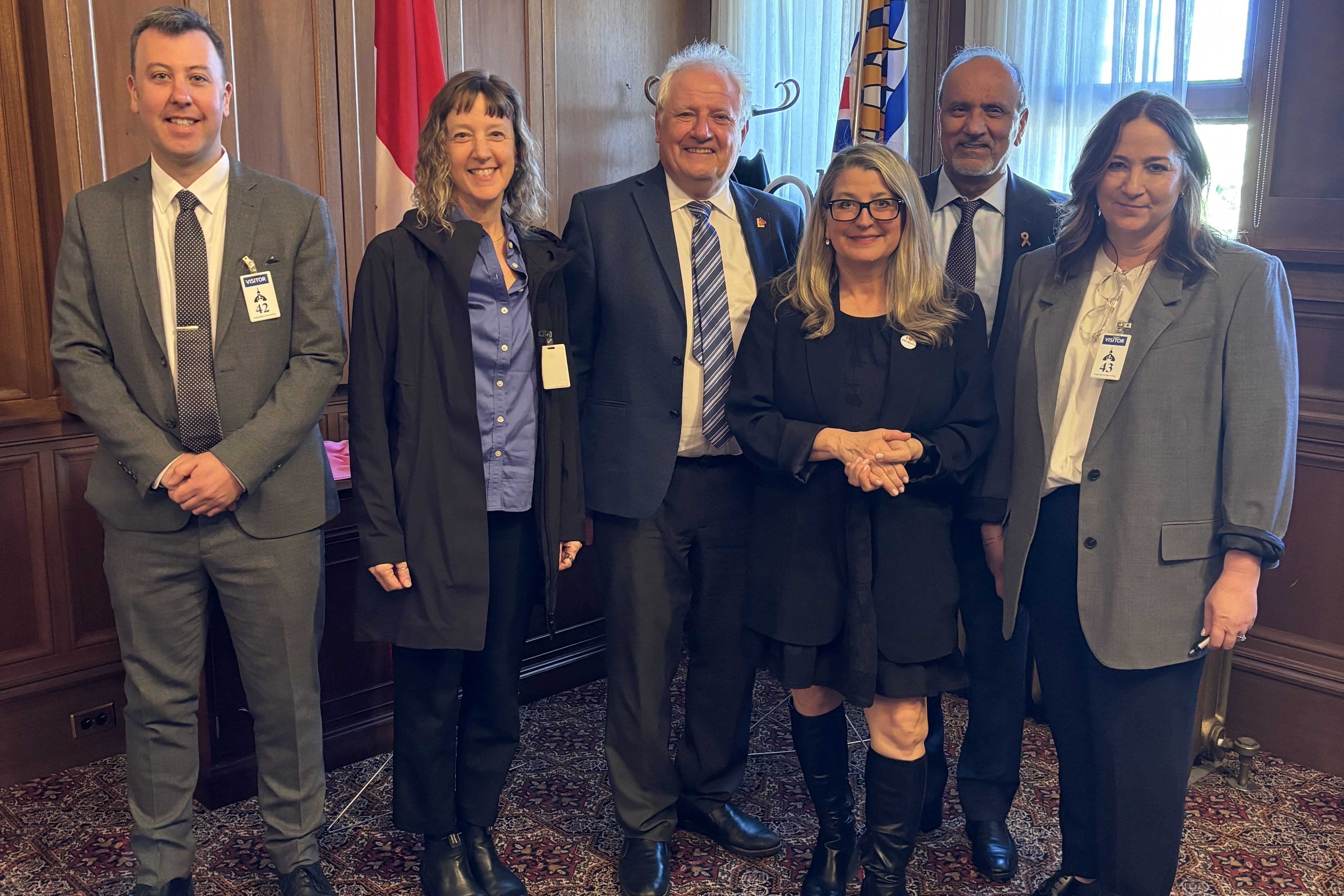
Applause!
Paul Sun-Hyung Lee Honoured with
Canadian Award of Distinction
Paul Sun-Hyung Lee was awarded the Canadian Award of Distinction at the Banff World Media Festival, held from June 9 to 12 in Banff, Alberta. Lee, known for his roles in Netflix’s Avatar: The Last Airbender and the Star Wars series The Mandalorian and The Book of Boba Fett, received this honour for his exceptional contributions to the industry. Previous recipients of this award include Colm Feore, Eric McCormack, Will Arnett, and his Kim’s Convenience co-star Simu Liu. Tom Green received the Sir Peter Ustinov Comedy Award. Allana Harkin and Jasmeet Raina hosted the Rockies Gala Awards and Rockie Awards International Program Competition, respectively.
Canadian Women of Power in Entertainment
Devery Jacobs, an award-winning performer, writer, director, and producer, received the Hollywood Reporter’s Women in Entertainment Canada’s Impact Award at the inaugural event in Toronto on May 30. Jacobs, from the Kahnawà:ke Mohawk Territory, advocates for Indigenous and LGBTQ2S+ rights. The Impact Award, presented in partnership with the Indigenous Screen Office, honours Canadian trailblazers who drive better representation and opportunities in media and entertainment.
ACTRA National President Eleanor Noble was featured in The Hollywood Reporter’s list of “Canadian Women of Power in Entertainment in Canada,” which highlights 42 top female industry leaders. UBCP/ACTRA sponsored the panel on gender parity in the Canadian entertainment industry.
Martin Cochingco and Johnson Phan win Outstanding
Stunt Performance Emmy Awards for Shōgun
ACTRA members Martin Cochingco and Johnson Phan have won Outstanding Stunt Performance Emmy Awards for their work on Shōgun. The British Columbia-shot series won Outstanding Drama Series and set a new Emmy record with 18 award wins in one season.
Cochingco and Phan won the award alongside stunt performers Hiroo Minami and Nobuyuki Obikane. For more than three days the group trained for the winning scene. Filmed on a freezing cold day in Langley, it took 13 takes to make it perfect.
The 76th Primetime Emmy Awards ceremony was hosted by ACTRA members Eugene and Dan Levy on September 15. Link here to the full winners list.
2024 ACTRA Awards in the Maritimes
The 2024 ACTRA Maritimes Awards were presented at the Screen Nova Scotia Awards Gala on May 11, held at Casino Nova Scotia’s Bruce Guthro Theatre before a sold-out audience. The event featured the presentation of four gender-neutral Outstanding Performance Awards and the inaugural Series Ensemble Award.
Locally filmed TV series proved to be a showcase, with Kirstin Howell (Moonshine) and Shelley Thompson (Sullivan’s Crossing) both taking home ACTRA Maritimes Awards for Outstanding Performances. Britt Loder also won an Outstanding Performance Award for her role in the Hallmark movie Christmas Island, while David Rossetti won for his performance in the short film Remnants, which was made in the Atlantic Filmmakers Cooperative’s Film5 program.
Jonathan Torrens, Mary Austin, Brian George, and James Faulkner took home the inaugural ACTRA Maritimes Series Ensemble Award. The cast of the Bell Fibe TV1 series Vollies were recognized for their role in the fresh, funny comedy that follows the Essex-West-Essex Fire Department, a small-town volunteer fire department that never has any actual fires to fight. Link here to the full winners list.
Winners of the 2024 ACTRA Awards in Toronto
The 22nd ACTRA Awards in Toronto took place at the Palais Royale on April 22. Maria Nash won the Outstanding Performance – Gender Non-Conforming or Female Voice Award for the role of Pinecone in Pinecone & Pony, “The Sturdy Stone” (First Generation Films, in association with DreamWorks Animation and Apple TV +). This year the award was presented in honour of Samantha Weinstein. Samantha was an ACTRA member and in 2006, at 10 years old, became the youngest winner of an ACTRA Award. The Outstanding Performance – Gender Non-Conforming or Male Voice was presented to Cory Doran as Balloonicus in Super Wish, “The Ballooniverse Pageant” (Discovery Kids Latin America, Nelvana, Corus, Redknot). The Outstanding Performance – Gender Non-Conforming or Female Award was presented to Elizabeth Saunders as Sue in smokeBreak (Benchmark Pictures) and the Outstanding Performance – Gender Non-Conforming or Male to Salvatore Antonio as Salomé in Slasher, “Everybody’s Darling” (Shaftesbury, Shudder, Hollywood Suite).
ACTRA Toronto’s 2024 Award of Excellence was presented to Maria del Mar by Maurice Dean Wint with a special introduction by Gil Bellows. The 2024 ACTRA Toronto Stunt Award was presented to Tom Farr by Jamie Jones. Sort Of (Sphere Media, CBC, Max) won the Members’ Choice Series Ensemble Award. The Marsh King’s Daughter (Black Bear Pictures, Anonymous Content) won the 2024 Stunt Ensemble Award. Link below to the online edition of the awards presentation.
Link here to the online edition of the awards presentation.
Tina Keeper appointed to Order of Canada
ACTRA member Tina Keeper has been named Member of the Order of Canada. Well-known for her award-winning role as RCMP officer Michelle Kenidi on CBC’s North of 60, Keeper was named ACTRA National Woman of the Year in 2017. One of the first Cree members of Parliament, from 2006 to 2008 Keeper was the elected Member of Parliament for Manitoba’s Churchill riding under the Liberal Party of Canada and went on to serve as the Official Opposition’s Critic for Public Health and Canadian Heritage. As co-founder of Kistikan Pictures, Keeper continues to focus on Indigenous rights, reconciliation, and gender-based violence through her work.
The Order of Canada, established in 1967, recognises Canadians whose contributions have significantly shaped and impacted society.
Congratulations to the
2024 Canadian Screen Award Winners
Crave/APTN’s Little Bird, created by Jennifer Podemski and Hannah Moscovitch, led television honours winning 13 awards including: Best Drama Series; Best Ensemble Performance, Drama; Best Lead Performer, Drama Series, presented by the Canada Media Fund, for Darla Contois; and Best Supporting Performer, Drama for Braeden Clarke.
CTV’s Children Ruin Everything was honoured with awards for Best Lead Performer, Comedy for Meaghan Rath and Best Supporting Performer, Comedy for Ennis Esmer, while Crave’s Letterkenny received Best Ensemble Performance, Comedy. The award for Best Stunt Coordination was presented to Sean Skene, Dan Skene, and Cam Fergus for Crave’s Shoresy.
Film honours were led by Matt Johnson’s BlackBerry which received a record 14 Canadian Screen Awards, including Best Motion Picture; Best Performance in a Leading Role, Comedy for Jay Baruchel; and Best Performance in a Supporting Role, Comedy for Glenn Howerton. The Queen Of My Dreams secured the win for Performance in a Leading Role, Drama for Amrit Kaur, while Performance in a Supporting Role, Drama was presented to Chantal Thuy for Ru.
The 2024 Canadian Screen Awards broadcast aired on May 31 and was hosted by Mae Martin. You can view the 2024 Canadian Screen Awards on CBC Gem and the additional shows and full list of winners can be viewed at CanadianScreenAwards.ca. ACTRA is a proud sponsor of the Academy of Canadian Cinema & Television.
Top Photo, Paul Sun-Hyung Lee received the 2024 Canadian Award of Distinction at the BANFF World Media Festival. Photo: Kristian Bogner








